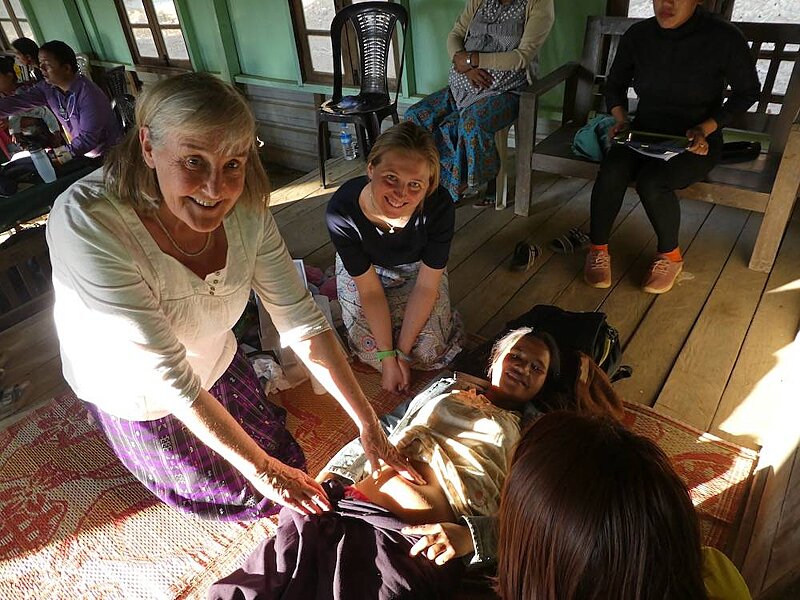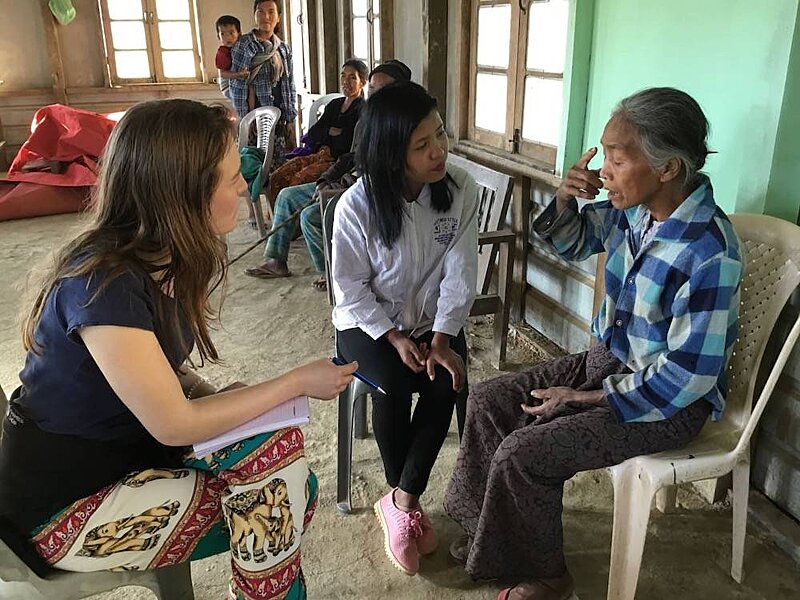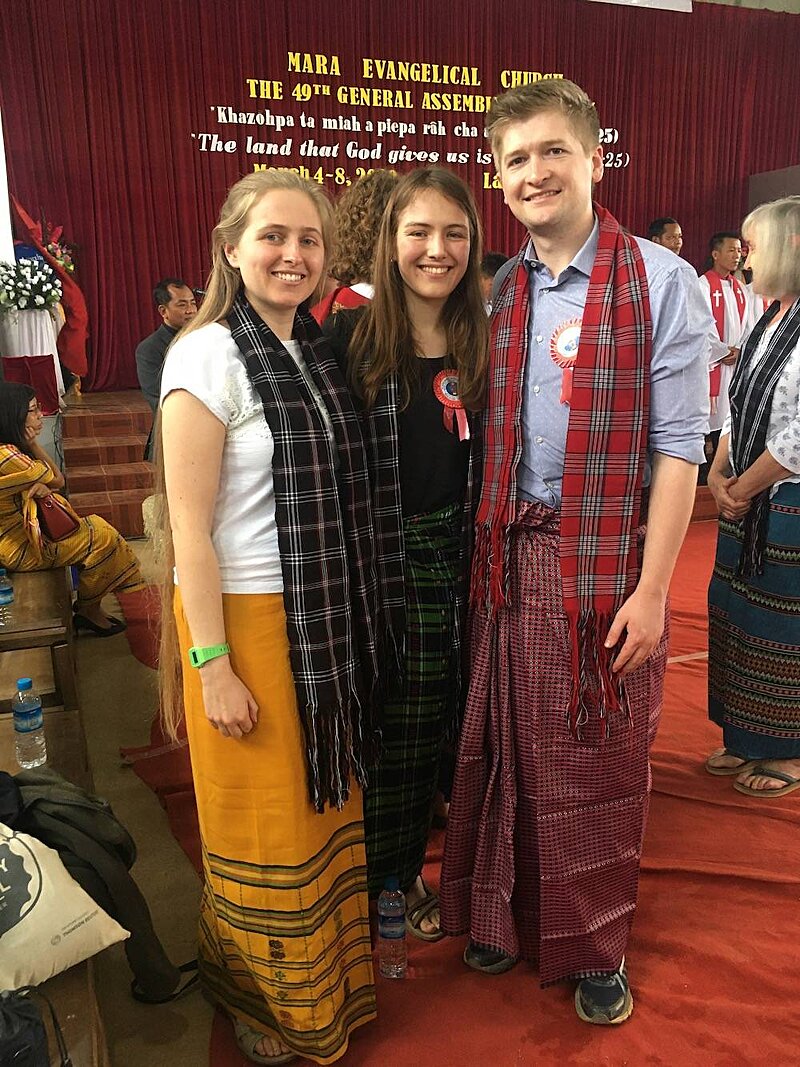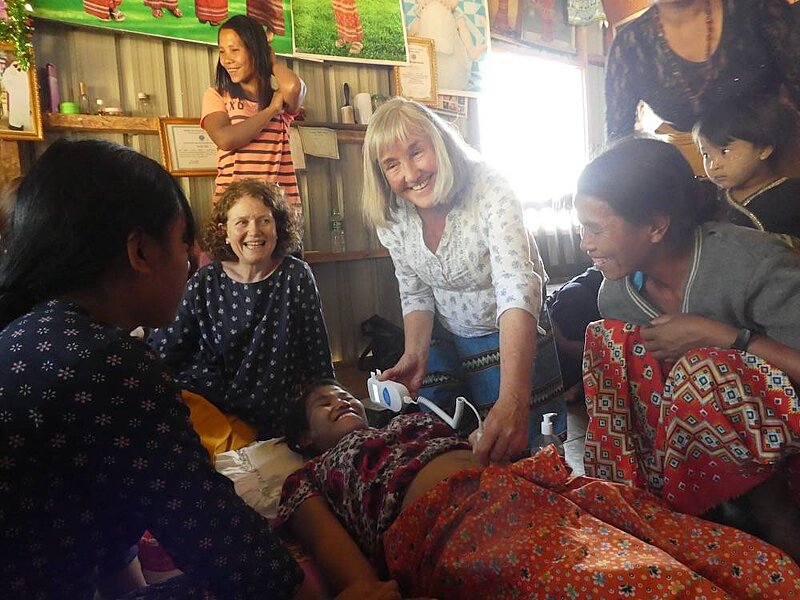Medical elective student reflections on trip to Lailenpi
Posted on 19th April 2020 by Chris Jones
My visit to Lailenpi was one of the most revitalising experiences that has ever happened to me. We were shown so much love; it was incredibly humbling. One of the lessons I would pass on to anyone who visits would be: always pack a jumper! If you think you’re leaving your accommodation for just one hour, it could very well turn out to be for seven, and the evenings get very cold!
Our time was incredibly full, even though it was sadly shorter than anticipated due to having to leave early because of the Covid-19 outbreak. We are so grateful to all the people who made us welcome, and to the incredible Health and Hope team who taught us so much during our time working with them. There are many experiences that I could share, but I thought I would highlight the more ‘flexible’ attitude to timings that I learned to embrace, which was illustrated on one of our days travelling out to a remote village in order to run training and a health clinic.
The village was a two hour drive from Lailenpi, and we went with Midwifery Trainers, Maaike and Frances, who had come from the UK to run workshops. Two local nurses came with us to help and act as interpreters.
We arrived around mid-morning and, as with everywhere, were made to feel incredibly welcome. We were offered some lovely local foods including eggs, bananas and an amazing tomato salad!
We’d come mainly to see how the Traditional Birth Attendants were getting on. Many of them had been trained by local people, and so this was a chance for Maaike and Frances to assess how well this ‘passing-on’ of training is working.
We also ran clinics for women in the village who were either pregnant or hoping to become pregnant, and for mothers to bring ill children.
Whilst we saw a range of different problems within the clinic, there were three main issues for children that kept recurring: diarrhoea, fever and children who weren’t eating properly. Many of these issues were easy to solve and required nothing more than health education. Often local villagers are hoping for medication, as this is seen as the only effective treatment; it is an effort to encourage people that much simpler solutions are often all that is needed.
For example, guided by Frances’ wisdom, we discovered that nearly all of the children with diarrhoea didn’t wash their hands. We were able to offer advice around good hand hygiene as well as discussing how to prepare a simple oral rehydration solution and advocating the benefits of continued breast feeding, if age appropriate and possible.
A surprise came for me when treating a five-year old child who wasn’t sleeping properly. It turned out he was using a mobile phone at bedtime. I’d never imagined that too much screen time would be an issue in rural Myanmar!
After we had treated all the children, there were some adults desperate to be seen, and so naturally we agreed to do so. Then, whilst we were finally packing away, one more lady came and begged us to see her as “just one last person.”
I’m so glad that we agreed. It saddens me that that this poor lady had been suffering with a urinary infection for over a year without being able to access help. Despite our limited resources due to the mobile nature of the clinic, we were able to prescribe her a course of antibiotics, and ‘sign post’ her to the Community Health Worker for follow-up care.
At the end of this long clinic, we were treated to another feast. Before we set off for home, we were invited to the local TBA trainer’s house to meet her children. Here again, we were made more than welcome — the hospitality really is incredible. This time together was such a treat. We were shown around the village, and I felt better able to understand village life.
I was struck by just how far some of the TBAs have to travel to attend births, often on foot. Their commitment to their voluntary roles is humbling.
My experience with Health and Hope left me realising that there is a vast amount that can be done to improve the health of communities without medication. Whilst posters and public health sessions have already been provided, many communities have yet to fully embrace the significance of nutrition and hygiene for daily health and well-being.
People were often visibly disappointed when we dispensed health advice, rather than a course of medication for them or their children. I hope that Health and Hope continue to develop this area of training for the Community Health Workers and TBAs as bringing about this change in mindset takes time.
I also hope that I can return to Lailenpi one day — maybe in a few years’ time when I have been working as a qualified doctor for a while. I would like to go back with more knowledge and skills to pass on. It would be wonderful to see the progress of the work. I will never forget the commitment of the people I have met. They are incredibly knowledgeable, and are clearly having an amazing impact. They are saving lives.





